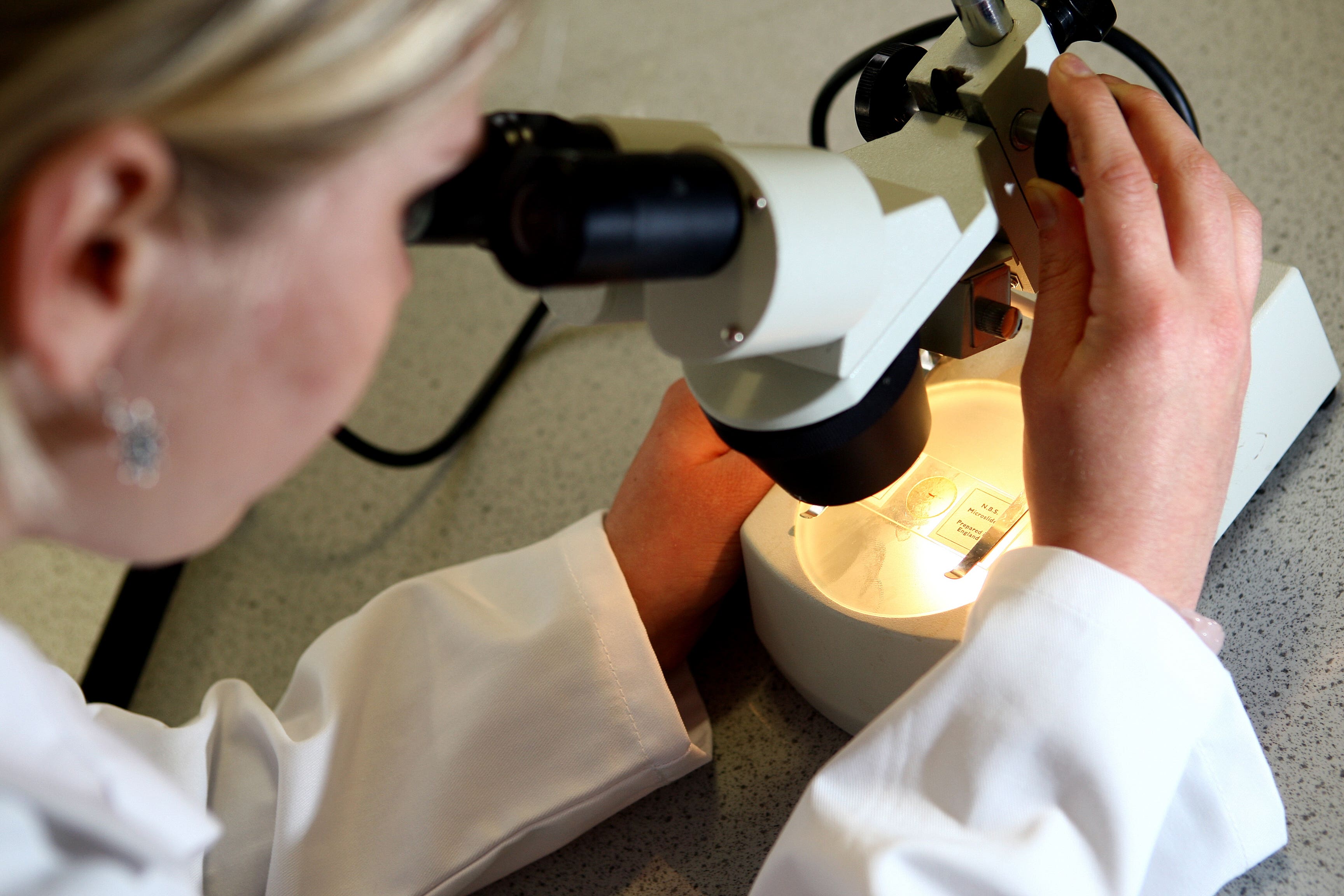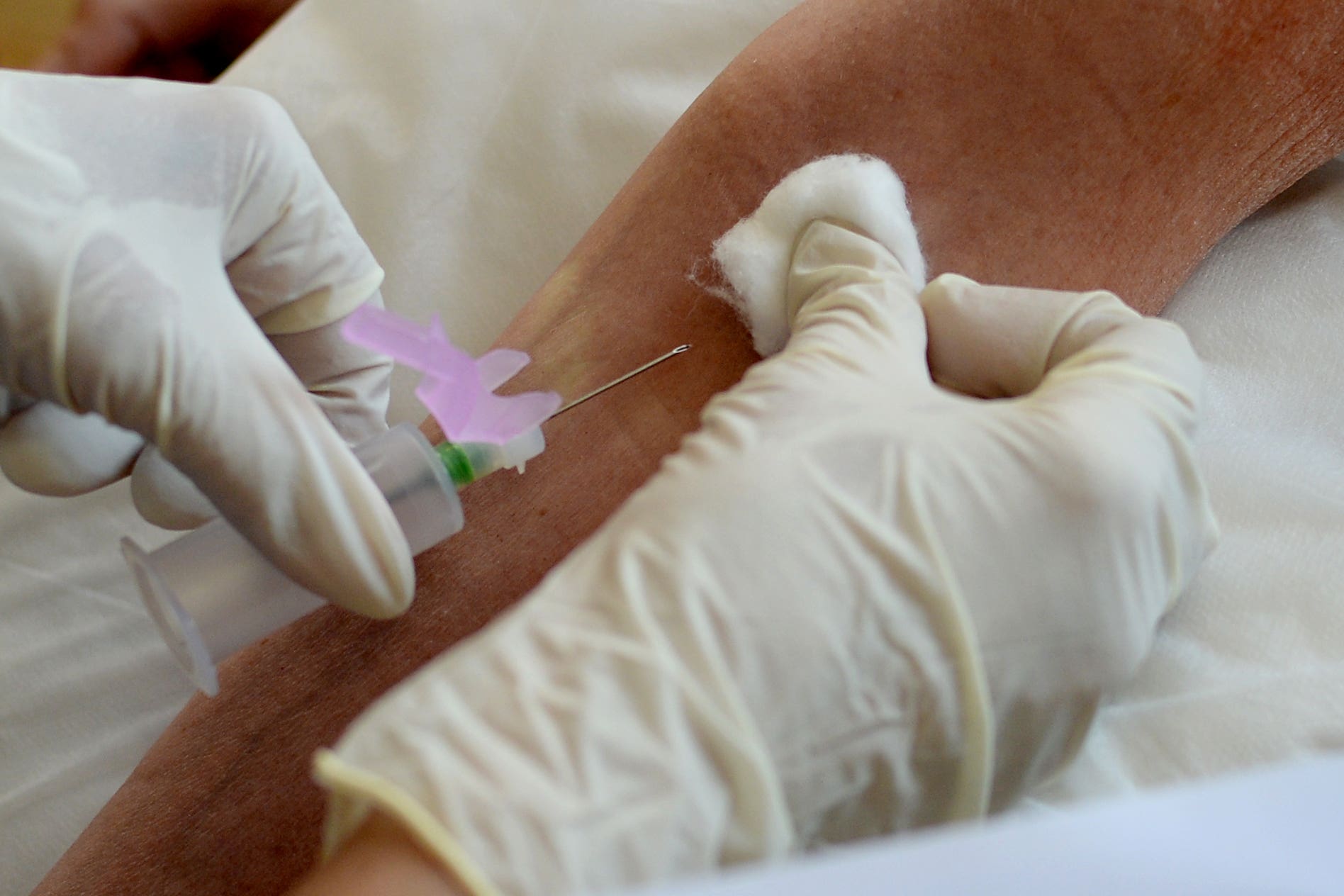Pancreatic cancer has the lowest survival rate of all common cancers. A new tool could change that
Pancreatic cancer is very difficult to diagnose at an early stage

People who have lost a relative to pancreatic cancer can check their risk of getting the disease with a new first-of-its-kind tool.
Because pancreatic cancer is very difficult to diagnose at an early stage, it has a poor survival rate. It has the lowest survival rate of all common cancers, with more than half of people dying within three months of diagnosis.
The Family History Checker will help to identify people with inherited risk of the disease and refer them for regular monitoring – giving them the best chance of being diagnosed early.
To meet criteria for inherited risk, a person could have a family with a genetic condition linked to pancreatic cancer and at least one case of pancreatic cancer in the family.
They could also have been diagnosed with hereditary pancreatitis, or have more than one relative with pancreatic cancer on the same side of the family.
People are invited to use the checker and will be asked three questions covering their family history of pancreatic cancer, other genetic conditions associated with the disease and pancreatitis.
These answers will help to identify who should be referred for further risk assessment through a study known as the European Registry of Hereditary Pancreatitis and Familial Pancreatic Cancer (Europac).
Rachel Smith, 42, has had two of her family members diagnosed with pancreatic cancer.
In 2017, her father, Michael, was diagnosed just before he turned 65.
First he was told he was it was terminal but, fortunately, a specialist from another hospital reviewed his case and he soon had a 12-hour surgery that saved his life.

Three years later, Rachel’s brother, Jim, was also diagnosed with pancreatic cancer.
Delays caused by the pandemic meant his cancer went from potentially operable to inoperable, and he died just eight months after diagnosis.
After her brother’s death, Ms Smith enquired about genetic testing and was invited to receive an annual blood test and was provided with direct contact details for a specialist.
She said: “Being invited for a yearly check-in is reassuring, and it’s good to know these programmes are in place for the next generation, for Jim’s children and mine.
“Jim was diagnosed at the age of 43 – if he had been on a surveillance programme, maybe the changes in his pancreas would have been noticed earlier.
“Getting those at most risk on to these programmes as early as possible will make a huge difference. There is simply nothing that can be done if it’s too late.”
Diana Jupp, CEO of Pancreatic Cancer UK, said: “It is now vital that as many people as possible use the Family History Checker, so that everyone who should be referred for regular monitoring is found.
“The earlier pancreatic cancer is spotted, the more likely it is that people will be able to have lifesaving treatment. By reaching more people, lives could be saved.”
Some 10,500 people are diagnosed with pancreatic cancer in the UK each year, and research suggests one in 10 cases are inherited.
According to the charity Pancreatic Cancer UK, which created the checker, around 80% of people with the disease are not being diagnosed until later stages when curative treatment may not be possible.
The Europac team will review the cases referred by the checker and identify who should be invited to receive annual monitoring, which will ensure changes to the pancreas can be spotted earlier.
However, the vast majority of people will not have increased inherited risk and will be able to receive reassurance for the first time.
Bookmark popover
Removed from bookmarks